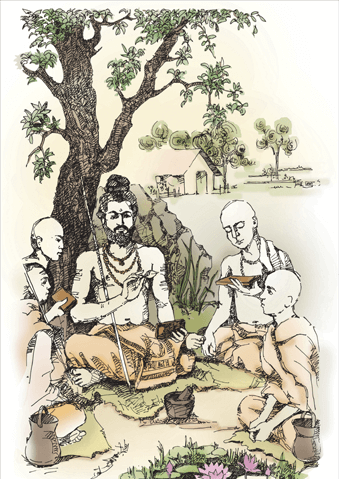How Ayurveda Integrates with Modern Medicine for Optimal Health
How Ayurveda Integrates with Modern Medicine for Optimal Health
Blog Article
Why You Need to Get It: The Transformative Power of Ayurveda Explained
Ayurveda, a classic system of medicine, provides an one-of-a-kind perspective on health and wellness that goes beyond plain symptom administration. As we check out the core concepts and techniques of Ayurveda, it becomes apparent that its transformative prospective expands much past traditional health and wellness paradigms-- increasing the inquiry of just how it might reshape your understanding of wellness.
Recognizing Ayurveda's Core Principles
Ayurveda, commonly defined as the "scientific research of life," is rooted in a holistic approach to health that intertwines the physical, mental, and spiritual dimensions of well-being. Central to Ayurveda are the ideas of the five aspects, referred to as "Pancha Mahabhuta," which make up earth, water, ether, fire, and air. These components incorporate to create 3 main energies, or "doshas": Vata, Pitta, and Kapha, each representing different combinations of mental and physical features.


Recognizing these doshas is important for determining a person's special constitution, or "Prakriti," which overviews individualized wellness approaches. Ayurveda emphasizes equilibrium, advocating for a lifestyle that harmonizes these energies with diet plan, natural treatments, and everyday routines. Additionally, Ayurvedic principles assert that health is not merely the lack of illness however a state of ideal vitality.
The technique of mindfulness and self-awareness is essential, encouraging individuals to create a much deeper connection with their bodies and the environment. By identifying the interaction of emotional and physical factors, Ayurveda advertises a thorough understanding of wellness that equips individuals to organize their wellness, promoting a path in the direction of alternative change.
Advantages of Ayurvedic Practices
Routinely including Ayurvedic methods into day-to-day live can produce a multitude of advantages that improve overall health. These time-honored practices focus on achieving consistency within the spirit, mind, and body, causing improved physical wellness, mental quality, and emotional equilibrium.
One significant advantage of Ayurvedic practices is their capability to advertise digestive health. Individualized dietary suggestions, based on an individual's dosha, can maximize nutrient absorption and decrease gastrointestinal problems. In addition, Ayurvedic herbs and flavors, such as turmeric and ginger, have anti-inflammatory properties that can help in the avoidance and management of chronic illness.
Additionally, Ayurvedic techniques stress the importance of daily routines, understood as dinacharya, which cultivate security and predictability in one's life. This uniformity can lower stress levels and enhance productivity. Mindfulness methods, including meditation and yoga, not only cultivate mental durability however likewise enhance emotional guideline.
Finally, by promoting a link to nature and highlighting alternative living, Ayurveda motivates individuals to participate in self-care and grow a feeling of neighborhood. Generally, the combination of Ayurvedic methods can result in a much more balanced, vibrant, and fulfilling life.
Key Elements of Ayurvedic Recovery
What are the basic components that add to the effectiveness of Ayurvedic healing? At the core of Ayurveda exist 3 main elements: the concept of doshas, the emphasis on equilibrium, and the alternative method to health. The doshas-- Vata, Pitta, and Kapha-- represent the one-of-a-kind mixes of the five elements that control private constitutions. Comprehending one's dosha is vital for tailoring therapies that bring back equilibrium and promote well-being.
Equilibrium is a repeating motif in Ayurvedic healing, reflecting the idea that health and wellness emerges from consistency within the body and in between the private and their environment. Interruption of this balance can cause disease, demanding targeted interventions to recover equilibrium.
In addition, Ayurveda embraces an all natural method, taking into consideration physical, mental, and spiritual facets of health. This thorough viewpoint acknowledges that emotional wellness and way of living choices dramatically influence physical health and wellness.
Incorporating Ayurveda Into Daily Life
Integrating the concepts of Ayurveda into day-to-day live can dramatically enhance general health and advertise a deeper connection to one's body and atmosphere. By taking on Ayurvedic practices, individuals can cultivate equilibrium and consistency within themselves, adapting to their special constitution or dosha.

Incorporating herbal remedies and all-natural ingredients right into individual treatment regimens can even more strengthen Ayurvedic concepts. Making use of oils for self-massage, known as abhyanga, promotes flow and relaxation. Furthermore, including reflection or yoga exercise can boost psychological clarity and emotional stability, promoting an alternative technique to health.
Last but not least, understanding ecological variables, such as environment and seasonal adjustments, check these guys out makes it possible for people to readjust their way of livings as necessary, ensuring that their practices remain reliable and encouraging - Ayurveda. By weaving these concepts into daily life, one can experience profound benefits, leading to a more balanced and meeting presence
Personal Changes Through Ayurveda
The implementation of Ayurvedic concepts right into everyday routines frequently results in significant individual makeovers, as people begin to experience profound shifts in both physical and mental wellness. By accepting methods such as dietary alterations, organic supplements, and conscious reflection, numerous report enhanced power degrees, improved digestion, and boosted emotional durability.
People usually locate that the alternative method of Ayurveda addresses not simply signs, but underlying inequalities within the mind and body. For instance, taking on an individualized nutritional regimen based upon one's dosha can result in weight management, minimized inflammation, and much better overall vigor - Ayurveda. In addition, the consolidation of day-to-day self-care rituals, such as oil drawing or Abhyanga (self-massage), fosters a deeper link to one's body, promoting self-awareness and supporting psychological well-being.
As professionals Click Here dive deeper right into Ayurvedic viewpoint, they often uncover a renewed feeling of objective and clarity in their lives. This transformative journey urges individuals to grow mindfulness, leading to much healthier connections and a greater admiration for the present minute. Eventually, Ayurveda empowers people to organize their health, promoting a lasting and purposeful change in their lives.
Conclusion
By applying and identifying individual doshas tailored practices, Ayurveda promotes ideal health and emotional strength. The concepts of Ayurveda offer beneficial understandings for cultivating a fulfilling and vibrant life.
As we check out the core concepts and practices of Ayurveda, it ends up being obvious that its transformative potential prolongs much beyond traditional health and wellness paradigms-- elevating the question of how it may reshape your understanding of health.
Ayurveda, frequently described as the "science of life," is rooted in an all natural method to health and wellness that links the physical, mental, and spiritual dimensions of wellness. At the core of Ayurveda lie 3 key components: the idea of doshas, the focus on balance, and the all natural strategy to health. Eventually, Ayurveda encourages individuals to take charge of their health and wellness, promoting a enduring and meaningful change in their lives.
By carrying out and acknowledging individual doshas customized techniques, Ayurveda discover this fosters optimal wellness and psychological strength.
Report this page